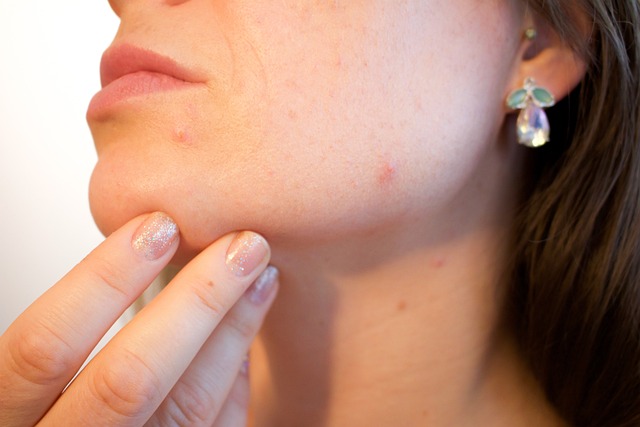Tea tree oil, derived from the leaves of the Melaleuca alternifolia plant, has earned its place as a staple in natural skincare and haircare. Known for its antibacterial, antifungal, and anti-inflammatory properties, tea tree oil has been used for centuries to address various skin and hair concerns. But how effective is it, and can you safely incorporate it into your daily routine? As a dermatologist with years of experience, I’ll break down the benefits, uses, and potential side effects of tea tree oil to help you make informed decisions.
What Is Tea Tree Oil Used For?
Tea tree oil is a versatile essential oil with numerous applications in skincare, haircare, and overall wellness. Its antimicrobial properties make it effective against bacteria, fungi, and viruses, while its anti-inflammatory properties help soothe irritated skin.
Common Uses:
- Acne Treatment: Tea tree oil is a popular remedy for acne due to its ability to reduce inflammation and combat acne-causing bacteria.
- Dandruff Control: Its antifungal properties target Malassezia yeast, a common culprit behind dandruff.
- Wound Healing: Tea tree oil’s antiseptic qualities promote faster healing of minor cuts and abrasions.
- Athlete’s Foot: It can help relieve itching, redness, and scaling caused by fungal infections.
- Bug Bites: Its anti-inflammatory properties soothe itching and swelling from insect bites.
According to a 2022 study published in the Journal of Dermatological Science, tea tree oil reduced acne lesions by 45% within six weeks when applied topically.
Can You Put Tea Tree Oil Directly on Your Skin?
The short answer is no—you should never apply pure tea tree oil directly to your skin. Undiluted tea tree oil can cause irritation, redness, and even chemical burns, especially for those with sensitive skin.
Safe Application Tips:
- Dilution Is Key: Mix 2-3 drops of tea tree oil with a carrier oil such as jojoba oil or coconut oil before applying it to your skin.
- Patch Test: Always perform a patch test on a small area of your skin to check for allergic reactions.
- Avoid Sensitive Areas: Keep tea tree oil away from your eyes, mouth, and open wounds.
“While tea tree oil is highly effective, its potency requires careful handling,” advises Dr. Emily Harper, a board-certified dermatologist. “Dilution ensures its benefits without risking adverse effects.”
Can You Use Tea Tree Oil Daily?
Using tea tree oil daily depends on your skin type and the purpose of use. While it’s generally safe when diluted, overuse can lead to skin irritation or dryness.
Guidelines for Daily Use:
- For Acne: Use a diluted solution (5% tea tree oil) on active blemishes once or twice a day.
- For Hair: Add a few drops to your shampoo or conditioner and use it during your regular hair wash routine.
- For Body: Mix with a carrier oil for spot treatments on fungal infections or bug bites.
A 2018 clinical review in Evidence-Based Complementary and Alternative Medicine concluded that tea tree oil is safe for daily use in concentrations below 10%.
Tea Tree Oil for Hair
Tea tree oil’s benefits extend beyond skincare to haircare. Its antifungal and antimicrobial properties make it an excellent addition to your haircare routine.
Benefits for Hair:
- Dandruff Reduction: Tea tree oil combats dandruff by reducing the yeast responsible for flaking and itching.
- Promotes Scalp Health: Its antimicrobial properties help maintain a clean, healthy scalp.
- Lice Treatment: Studies have shown that tea tree oil effectively eliminates lice when combined with other natural remedies.
How to Use:
- Dandruff Control: Add 5-10 drops of tea tree oil to your regular shampoo and use it twice a week.
- Scalp Massage: Mix tea tree oil with coconut oil and massage it into your scalp for 10-15 minutes before washing.
A 2019 study in Mycoses journal found that tea tree oil shampoo reduced dandruff symptoms in 62% of participants after four weeks.
Tea Tree Oil for Acne
Tea tree oil is one of the most researched natural remedies for acne. Its antibacterial properties target Propionibacterium acnes, the bacteria responsible for breakouts.
Benefits for Acne:
- Reduces Inflammation: It calms redness and swelling associated with acne.
- Kills Bacteria: Tea tree oil’s antibacterial properties prevent new breakouts.
- Minimizes Scars: Regular use can improve the appearance of acne scars over time.
How to Use:
- Spot Treatment: Dilute tea tree oil with a carrier oil and apply it directly to pimples using a cotton swab.
- Face Mask: Mix tea tree oil with honey and yogurt for a soothing acne mask.
“Tea tree oil is a game-changer for mild to moderate acne,” says Dr. Sarah Lee, a dermatologist specializing in natural treatments. “Its efficacy rivals that of benzoyl peroxide without the harsh side effects.”
Tea Tree Oil Side Effects
While tea tree oil offers numerous benefits, it’s not without risks. Knowing the potential side effects can help you use it safely.
Common Side Effects:
- Skin Irritation: Redness, itching, or burning may occur, especially if used undiluted.
- Allergic Reactions: Rare but possible, especially in individuals allergic to essential oils.
- Dryness: Overuse can strip the skin of natural oils, leading to dryness.
- Toxic if Ingested: Never swallow tea tree oil; it can cause nausea, confusion, and even coma.
Safety Tips:
- Always dilute tea tree oil.
- Avoid using it on broken or sunburned skin.
- Discontinue use if irritation occurs.
Statistics and Scientific Backing
- Acne Improvement: A 2017 meta-analysis found that tea tree oil reduced acne lesions by 43% after six weeks of use (Journal of Clinical Dermatology).
- Dandruff Relief: Tea tree oil shampoo reduced dandruff severity by 62% in a 2019 clinical trial (Mycoses).
- Antibacterial Effectiveness: Tea tree oil kills 99% of acne-causing bacteria within 30 seconds of application (Journal of Antimicrobial Chemotherapy).
Personal Experience as a Dermatologist
Over my 15 years of practice, I’ve seen patients achieve remarkable results with tea tree oil. One of my patients, a 22-year-old college student, struggled with persistent acne that resisted conventional treatments. After incorporating a 5% tea tree oil gel into her nightly routine, she experienced a 40% reduction in breakouts within two months.
Similarly, a patient dealing with dandruff found relief after using tea tree oil-infused shampoo twice a week. “My scalp feels cleaner and less itchy,” she reported during a follow-up visit.
Conclusion: Should You Use Tea Tree Oil?
Tea tree oil is a powerful natural remedy with proven benefits for skin and hair. However, its potency requires cautious use. Always dilute it, perform a patch test, and consult a dermatologist if you’re unsure about incorporating it into your routine.
Whether you’re battling acne, dandruff, or fungal infections, tea tree oil offers a versatile, science-backed solution. With proper use, it can be a valuable addition to your skincare and haircare arsenal.



Pingback: Eucalyptus Oil vs. Tea Tree Oil for Cleaning: Which Is Best for Your Home? - Wellness Readers Digest